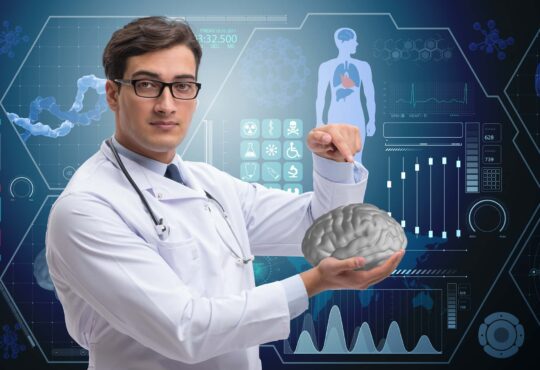
It’s now been 18 years since Ray Kurzweil and Terry Grossman predicted that if you could live until 2020 or so, you might live forever.
That was in their book, Fantastic Voyage: Live Long Enough to Live Forever. We’ve reached that period. People are still dying, of course, and that won’t stop anytime soon – but since that book’s publication medical research has accelerated far faster than anybody (except Kurweil and Grossman) predicted.
In the news just today: the FDA is going to approve a gene-editing therapy to treat sickle cell anemia.
Sickle cell anemia is a genetic disorder where red blood cells are misshaped. Although this protects the person from malaria, it also causes life-threatening symptoms, especially pain crises.
CRISPR (Clustered Regularly Interspaced Short Palindromic Repeats) is the best-known technique for editing genes. But using it to repair genes for sickle cells is its first clinical application. If it proves effective at eliminating sickle cell, medical researchers will be trying it on many other health problems.
George Church PhD, Professor of Genetics at Harvard Medical School, one of the many pioneers working in this field, says CRISPR is good at “snipping” bad genes out of the genome, but most new gene therapies are going to add genes to enhance our health.
Church advises young people to get to know their genomes while they’re young and still dating, before falling in love with somebody who might be carrying undesirable genes.
Maybe you don’t have a genetic disease yourself, but you just don’t know what’s in your DNA.
Years ago, I met a young woman in the Navy staying at a local Ronald McDonald House because her newborn baby was in Children’s Hospital.
He had a rare genetic defect that kept him from making a protein needed to breathe. As a result, he spent his entire 1 1/2 months of life hooked up to a breathing machine – paralyzed by a medicine so he couldn’t dislodge the machine by moving around.
I’ve forgotten its name, but the mother told me medical science knew of only five other cases of this genetic disease. Evidently, both she and the father carried the gene, which has to be recessive, and so the baby was the one in four who inherited the recessive gene from both mother and father.
Given that all babies ever born with this condition must have died soon after birth – even today, that’s what would happen to any baby born without advanced medical support immediately available – it’s amazing any of these genes are still out there.
But, like the far more common genes for sickle cell and Duchene muscular dystrophy, they are in many human beings – who often don’t know it.
Church foresees the elimination of genes for sickle cell and Duchene muscular dystrophy.
He believes we’ll be able to use gene editing and synthetic biology to make all the cells in our bodies resistant to viral infections. That alone would be a tremendous benefit to everybody. No more HIV, no more influenza, no more COVID, no more viral pneumonia, no more rabies and no more colds – just to name a few.
People are working on changing a brain gene from APOE4 to APOE3 or even APOE2.
You may have seen APOE4 in the news because it’s associated with a 20X increased risk of Alzheimer’s. APOE3 and APOE2 don’t 100% prevent Alzheimer’s, but they eliminate that 20X extra risk.
Science may soon target the PCSK9 gene because it’s associated witth hypercholesterolemia. Adjusting it to normal should lower LDL cholesterol and, with it, the patient’s risk of heart disease.
THE COMING WAVE
In this new book, Mustafa Suleyman makes the case medical science is soon going to advance this far – and much farther.
The founder of two important AI companies, DeepMind and Inflection AI, Suleyman says DNA is simply information. Therefore, it can be understood and processed as data.
Advancing biotechnologies, especially in conjunction with AI, are soon going to transform humanity.
Suleyman says: “. . . biology itself became an engineering tool.”
Like AI and the rest of the high-tech field, synthetic biology is growing rapidly due to falling costs and greater effectiveness.
Also in the News . . .
A study carried out by the Royal Marsden NHS Foundation Trust and the Institute of Cancer Research (ICR) concluded AI is almost twice as accurate as biopsies in determining the aggressiveness of sarcomas.
Sarcomas are a rare form of cancer that develops in people’s connective tissues.
Biopsies were accurate in 44% of cases – the AI 82%.
Clearly, this is important for determining which patients need the most intensive therapies, and which ones can stop worrying so much.
Conclusion
Does this mean you can now just sit back and relax, knowing medical science will soon cure everything that ails you?
This may be true for many young people. Although the lifestyles of most young adults in the developed world is quite unhealthy, most of them have a large cushion of years before they begin to feel the symptoms of chronic diseases such as heart failure, stroke, cancer and diabetes.
But how long will it be before we develop a total “rejuvenation machine” of some kind that can erase all the negative health consequences to your body for all the bad food you eat, the exercise you don’t carry out and the nights of not enough sleep?
Will this science fiction machine somehow get rid of all excess weight, clear out all arterial plague, repair all liver damage and so on?
Eventually . . . probably.
But not for years.
For now, remember even young people can get sick and die.
The medical establishment will first of all direct these advances toward curing disease – and aging is not (yet) recognized as a disease.
To live so you feel your best and have the best chance of benefiting from all these advances that are still in the pipeline, especially to not die until they are fully developed and implemented, follow all the good health practices.
You don’t want to be the last person to die.
https://www.youtube.com/watch?v=o4MZ-JaIvFI
https://www.amazon.com/Fantastic-Voyage-Live-Enough-Forever/dp/0452286670/
https://www.amazon.com/Coming-Wave-Technology-Twenty-first-Centurys-ebook/dp/B0BSKW45KB/
https://www.theguardian.com/science/2023/oct/31/ai-better-than-biopsy-at-assessing-some-cancers-study-finds
https://www.nytimes.com/2023/10/30/health/sickle-cell-treatment-fda.html
https://www.broadinstitute.org/what-broad/areas-focus/project-spotlight/questions-and-answers-about-crispr







